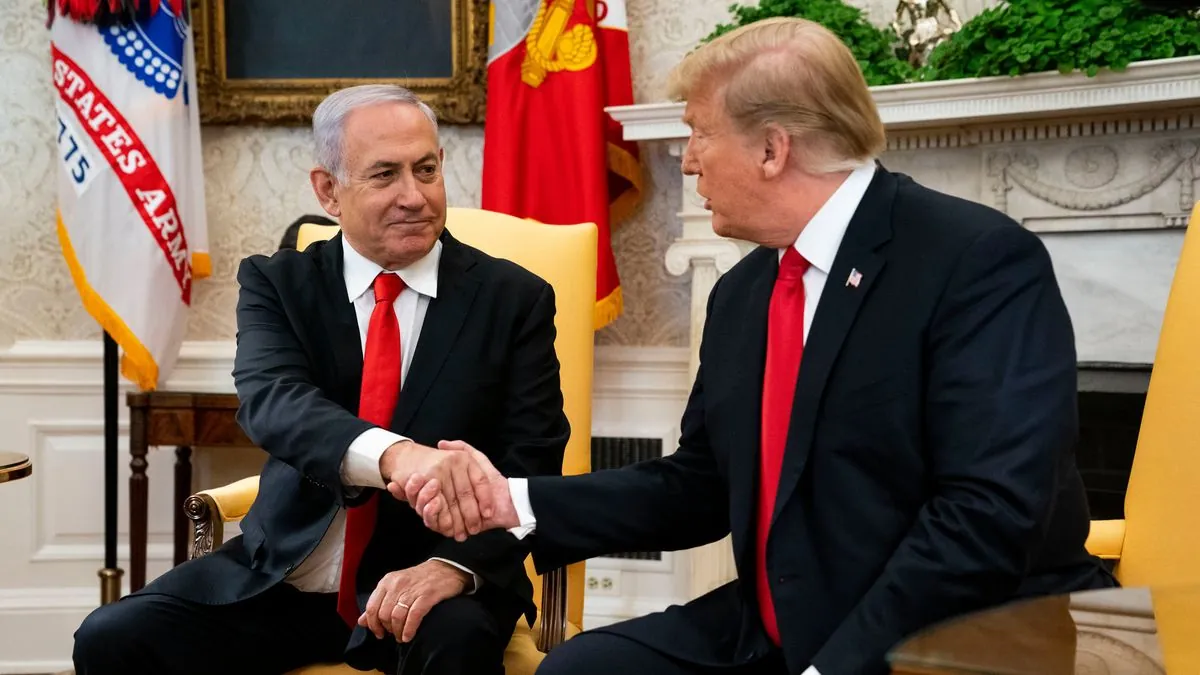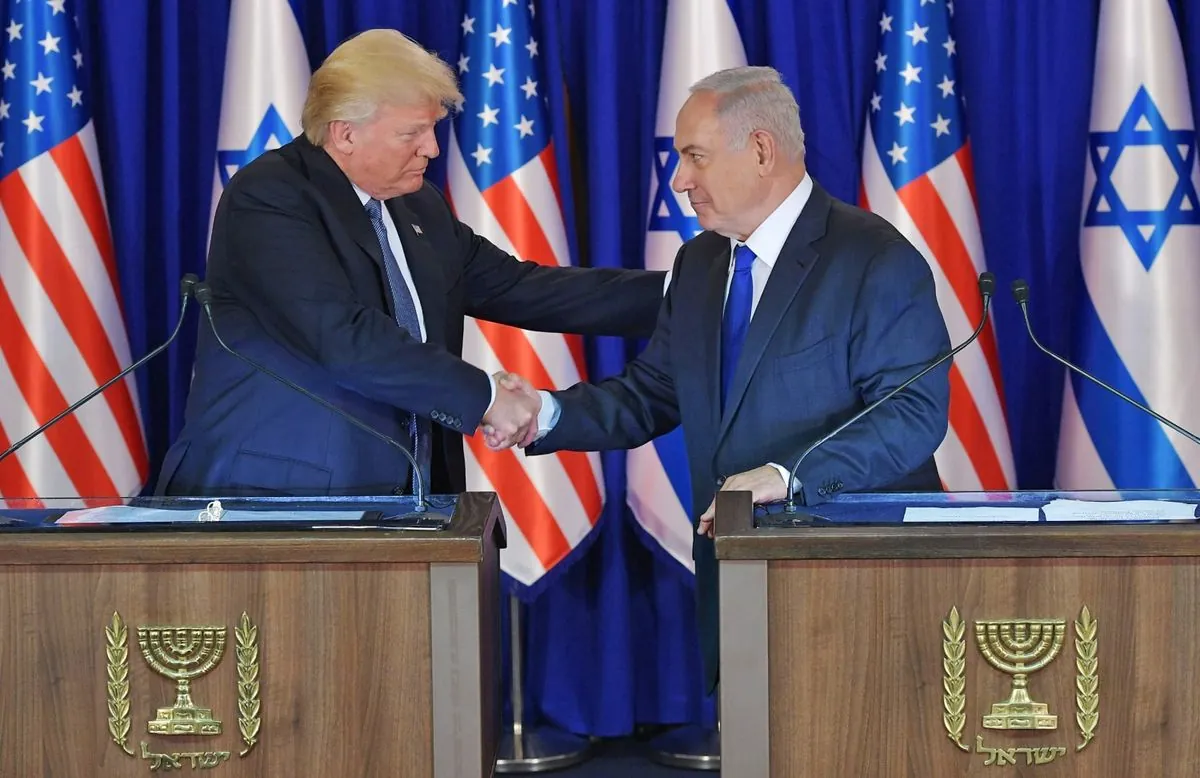Trump Reportedly Urges Netanyahu to Accept Gaza Ceasefire Deal
Former US President Donald Trump reportedly encouraged Israeli PM Benjamin Netanyahu to accept a Gaza ceasefire deal. Negotiations continue amid rising tensions and humanitarian concerns in the region.

Donald Trump, former U.S. President and current Republican presidential candidate, reportedly engaged in a telephone conversation with Israeli Prime Minister Benjamin Netanyahu on August 14, 2024. The discussion centered on the ongoing Gaza ceasefire and hostage release negotiations, according to sources cited by Axios.
The call, which occurred just one day before scheduled ceasefire talks in Qatar, was allegedly intended to persuade Netanyahu to accept the proposed deal. This communication highlights the continued involvement of U.S. political figures in Middle East peace efforts, even those not currently in office.

The reported conversation between Trump and Netanyahu follows a series of high-profile meetings in late July 2024. During his visit to the United States, the Israeli Prime Minister met with President Joe Biden, Vice President Kamala Harris, and Trump himself. These encounters underscore the complex web of diplomatic relations surrounding the Israeli-Palestinian conflict.
"Trump's call was intended to encourage Netanyahu to take the deal."
Efforts to broker a ceasefire have been ongoing since President Biden outlined a three-phase proposal on May 31, 2024. Despite continuous mediation attempts by Egypt, the United States, and Qatar, progress has been hindered by various obstacles. The situation is further complicated by Hamas's announcement that it would not participate in the upcoming round of talks scheduled for August 15, 2024, in Qatar.
The urgency for a ceasefire has intensified due to recent events that have escalated tensions in the region. The killings of Hamas leader Ismail Haniyeh in Iran and Hezbollah military commander Fuad Shukr in Beirut have prompted threats of retaliation against Israel, raising concerns about a potential wider conflict in the Middle East.
The current crisis stems from the Hamas attack on Israel on October 7, 2023, which resulted in approximately 1,200 Israeli casualties and the taking of about 250 hostages. Israel's subsequent military response in Gaza has led to significant Palestinian casualties and a dire humanitarian situation.
As negotiations continue, the international community remains focused on finding a resolution to the conflict. The United Nations has repeatedly called for a ceasefire, while the United States, as Israel's closest ally since 1948, emphasizes the importance of de-escalation to prevent further regional instability.
The ongoing situation in Gaza highlights the complex history of the Israeli-Palestinian conflict, which dates back to the mid-20th century. Despite past efforts like the Oslo Accords in the 1990s, a lasting solution remains elusive. The involvement of various international actors, including the Quartet on the Middle East (established in 2002 and comprising the UN, EU, US, and Russia), underscores the global significance of achieving peace in the region.
As talks proceed, the world watches closely, hoping for a breakthrough that could bring an end to the violence and pave the way for long-term stability in one of the world's most contentious areas.


































